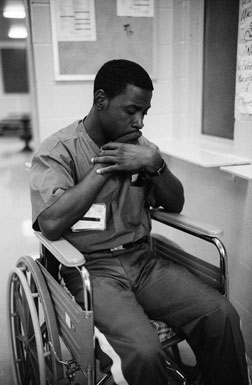Senate Committee Should Approve Historic Bills Passed by House
WASHINGTON - December 9 - Michigan's Senate Judiciary Committee should approve four bills abolishing life sentences without parole for juveniles in the state, Human Rights Watch said today in a letter to the committee. The practice is cruel, inappropriate, discriminatory, and a violation of human rights, Human Rights Watch said.
"Michigan has 321 young offenders sentenced to die in prison," said Alison Parker, deputy director of the US Program of Human Rights Watch. "Last week, the House rejected the notion that juveniles are beyond redemption. If these bills pass the Senate, they may be able to earn a chance at freedom."
On December 4, Michigan's 110-seat House of Representatives voted to pass the bills, by margins ranging from 12 to 61 votes, and the bills now move to the Senate. Michigan joins California, Florida, Illinois, Louisiana, Nebraska, and the federal government in taking steps toward ending the sentence of life without parole for offenders under age 18.
Read on...Michigan has 321 young offenders sentenced to die in prison. Michigan has 321 young offenders sentenced to die in prison. Tom

